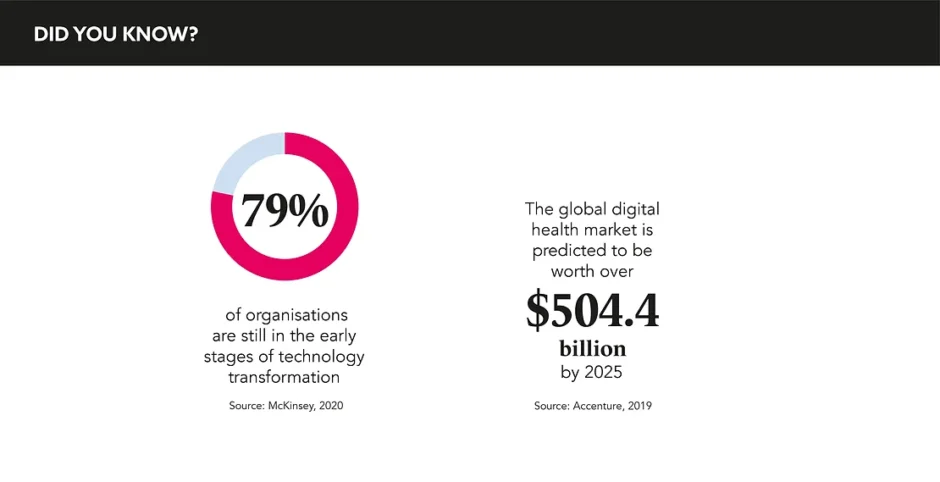Words by Michaila Byrne
Among the most impressive of civilisations in history are, without doubt, the ancient Egyptians and Greeks. Although both were trailblazing pioneers, dominant in the realms of philosophy, science, and mathematics, what would later come to distinguish one culture from the other was the decision to maintain the status quo versus challenging it. Propelling such progress into the 21st century is the Chief Digital Officer, ensuring that, like the Greeks, the pharmaceutical industry evolves with the times through continued collaboration and culture shifts.
Much of pharma’s strategy and capital is spent on improving digital competency and awareness by internally upskilling the average employee. Certainly, this is necessary for digital cohesion, but the CDO is focussed on something more underlying and deep-rooted: culture and behaviour.
It is the CDO’s duty to cross-examine traditional methodologies and encourage the industry to become less fearful and more willing to take risks, inevitably making mistakes along the way. At eyeforpharma Barcelona virtual 2020, Daniel Rothman, CDO, Dainippon Sumitomo Pharma, purports: “That is evident throughout the pharma industry. Everyone knows how they’ve done things for decades, and it’s endemic, because once a drug has moved along the margins are so high that it’s hard to take risks. The binary value impact is so big that it’s much easier for people to say, ‘let’s just do it the way we’ve always done it before.’”
Playing out Einstein’s theory of insanity will not generate original or new results, however a collaborative culture with an eagerness to change will. “A big part of being a driver of technological change is not about technology at all, but rather about behavioural change. How do you get people to stop pattern matching? How do you get people to feel good about taking smart risks and motivate them to increase value?” challenges Rothman.
Bertrand Bodson, CDO, Novartis, is also championing this move towards cross-company cultural cohesion: “We wanted to make sure that culturally everyone was driving and contributing to the digital transformation. It starts with demystifying what digital, data science, and technology is really all about, so our associates can really come on the journey as part of that.”
Sustaining enthusiasm within a company for this shift is a challenge the CDO is tasked with, especially when juggling several ideas that all carry their own risks. Feeling disheartened or discouraged if a project fails is understandable, but Milind Kamkolkar, CDO, Cellarity, proclaims that pharma must become more agile: “I would argue that the number one thing that businesses should look at – particularly in our sector where it tends to run rampant – is the conversion of pilots to either kill or thrill. The risk is not the adoption of technology, the risk is around managing the outcome that you are trying to drive towards. If you are able to stop those projects if they hit a brick wall, the worst thing you can do is keep going towards an indefinite zombie death, which actually kills a lot of the enthusiasm.”
Rothman argues that, instead, we should be committing to the creation of value. This happens incrementally when you pursue new methods and projects, even if they do fail, and is simply a part of being nimble: “Be willing to have multiple bets on at once and say, ‘okay well if this bet goes badly, then that doesn’t mean that these others don’t count so I shouldn’t trial them at the same time.’”
The ancient Egyptians’ talent for self-sufficiency blessed them with security but also gave way to insularity, allowing for only a finite level of advancement. Pharma cannot fall into the same trap and should read history as a cautionary tale. Entrusted with this invaluable task, the CDO bears the responsibility of questioning the status quo by overcoming risk to see value. How pharma’s legacy will be written in the history books is dependent on incremental behavioural changes, which will shape pharma’s culture more widely.










